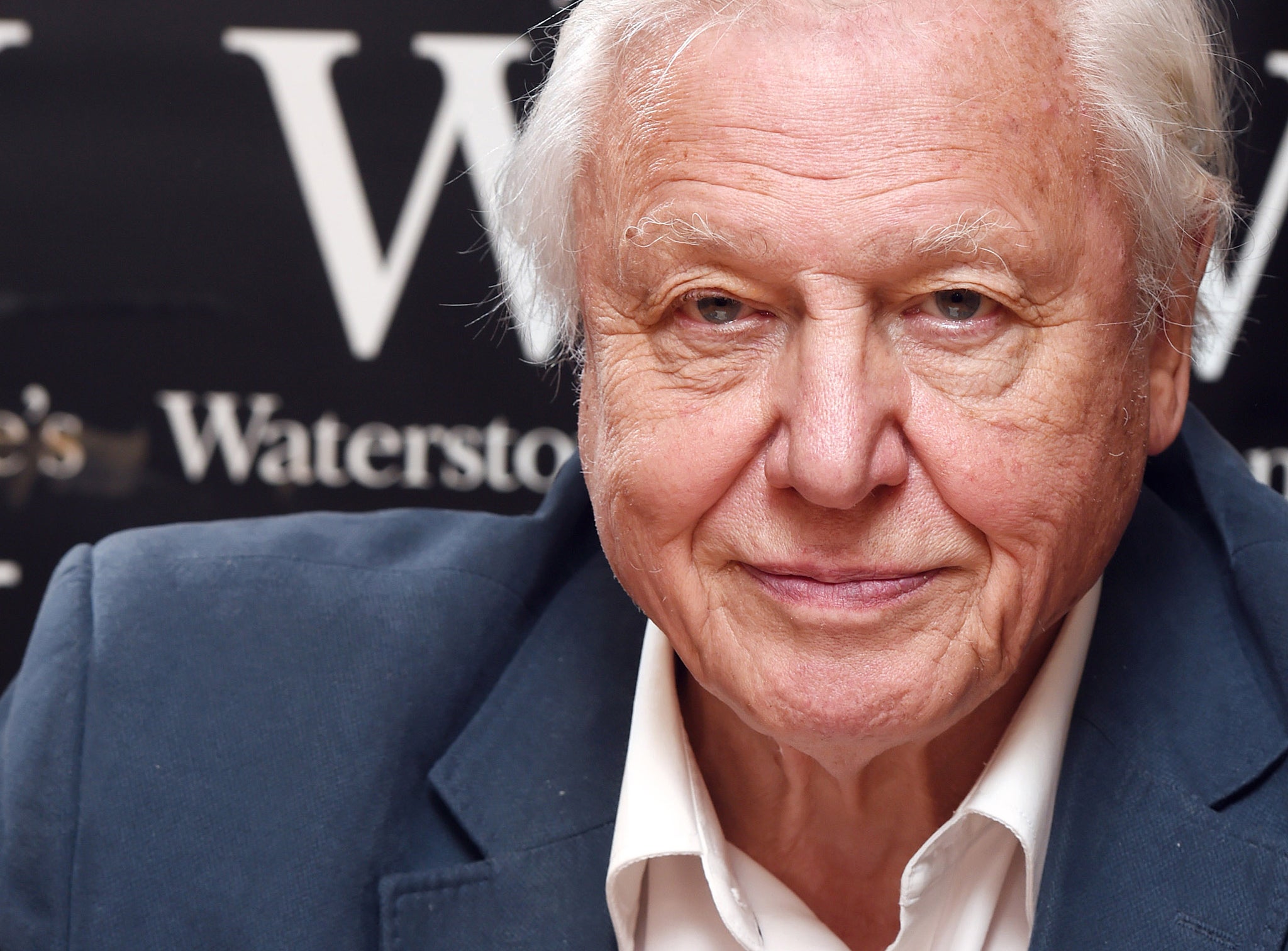David Attenborough calls on Chinese president to end ivory trade and halt extinction of the African elephant
The open letter calls on President Xi Jinping to outlaw the buying and selling of ivory

Your support helps us to tell the story
From reproductive rights to climate change to Big Tech, The Independent is on the ground when the story is developing. Whether it's investigating the financials of Elon Musk's pro-Trump PAC or producing our latest documentary, 'The A Word', which shines a light on the American women fighting for reproductive rights, we know how important it is to parse out the facts from the messaging.
At such a critical moment in US history, we need reporters on the ground. Your donation allows us to keep sending journalists to speak to both sides of the story.
The Independent is trusted by Americans across the entire political spectrum. And unlike many other quality news outlets, we choose not to lock Americans out of our reporting and analysis with paywalls. We believe quality journalism should be available to everyone, paid for by those who can afford it.
Your support makes all the difference.Sir David Attenborough and a group of broadcasters, conservationists and MPs have called on the Chinese president to bring his country’s ivory trade to an end and save the African elephant from extinction.
In an open letter to Xi Jinping, the broadcasting legend asks China’s leader to outlaw the buying and selling of ivory and to provide Chinese citizens with information on the issue.
The letter is timed to place pressure on China, the world’s biggest market for ivory, despite a global ban in 1989, ahead of a visit by Prince William to the country next month.
The prince is due to make a statement on conservation on 4 March in Yunnan province and conservationists expect him to discuss the wildlife trade, including ivory.
Last December, in a speech at the World Bank, Washington DC, he noted that the street price of ivory in China had increased from $5 (3.20) to $2,100 (£1365.86) per kg in 25 years and that the rise had precipitated an increase in poaching.
He said: “Those who look the other way [on the wildlife trade], or spend the illicit proceeds of these crimes, must be held to account.”
Leaders of several dozen conservation organisations and 34 MPs are among those who have signed the new letter, which warns that China risks damaging its own international image over the ivory trade.
“We believe your people, as well as the global community, would welcome your decision to band a trade that perpetuates so much cruelty and, as a consequence, a negative image of China internationally,” they write.
The signatories are categorical regarding China’s key role in the trade, citing research by the international wildlife trade body, Cites, that the country’s increasingly affluent middle class is causing demand for ivory to soar.
“Unless urgent actions are taken by the international community, and China in particular, to stop this demand, the killing of elephants will continue unabated and could lead to their extinction in much of their range areas within a short time – possibly as little as 10 years,” the letter, which was organised by Denise Dresner of Action for Elephants, says.
Cites data shows that more than 20,000 elephants are being killed annually in Africa while the UN puts the figure much higher at 32,000 prompting experts to warn that they risk being declared extinct at a local level in some countries.
China has been sensitive to allegations that it is directly responsible for the elephant poaching crisis. China’s foreign ministry said it “strongly dissatisfied” with a report that stated ivory prices in Tanzania spiked during a visit to the country by Xi.
During the 2013 visit Chinese officials were so brazen that they allegedly loaded ivory into diplomatic pouches on the presidential plane carrying Xi Jingpeng.
Although there is an international ban on trading ivory, China is allowed by Cites to trade ivory at a domestic level even though conservationists say it allows illegal ivory to be easily laundered. The letter says this trade needs to end.
“Mr President, we urge and implore you to act decisively to finally end China’s domestic ivory trade (both legal and illegal), and to consider the many ways this will serve China’s long-term political and economic interests”.
Join our commenting forum
Join thought-provoking conversations, follow other Independent readers and see their replies
Comments